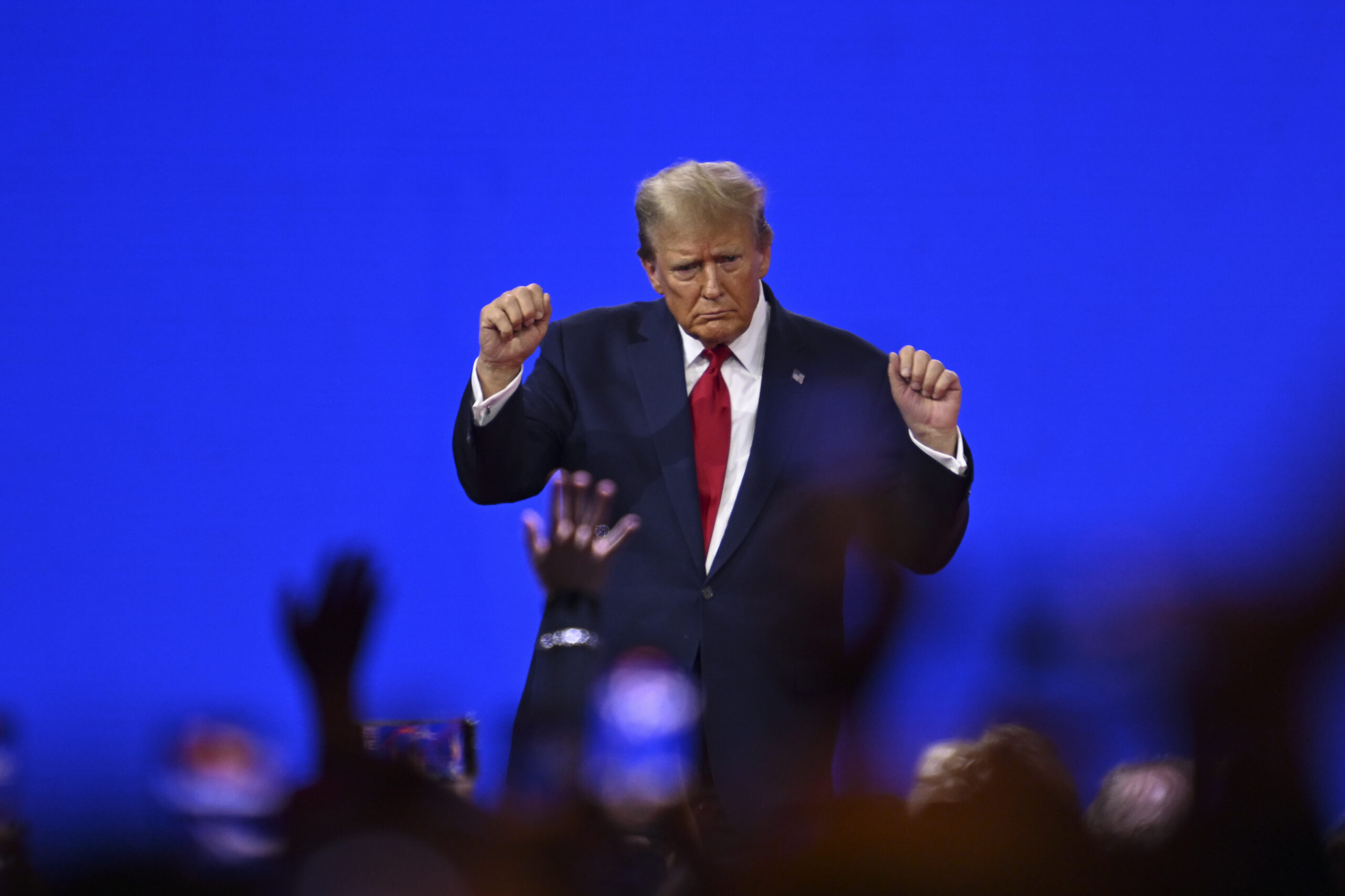Trump Upends the Rules of the Game
The former president’s high-risk strategy separates him from conventional Republicans.

It’s fitting that the final phase of the presidential race coincides with the beginning of the NFL season, especially since the first—and perhaps only—debate between Vice President Kamala Harris and the former President Donald Trump has made many Republicans nervous once again about their quarterback.
Trump’s most fervent supporters view him as the biggest winner in American politics, vulnerable only to the other side’s cheating. His most ardent detractors, especially inside the Republican Party, tend to view him as a loser in general with one flukey win over Hillary Clinton that he briefly was on the cusp of replicating against a greatly diminished President Joe Biden.
I’ve often argued that Trump is best understood as the political equivalent of a gunslinger quarterback whose talents keep every game close but always runs the risk of turning the ball over at the worst moment. The conventional wisdom on such quarterbacks in the NFL is that they always keep both teams in the game.
Both parties are counting on Trump to keep them in the game this November. The former president’s campaign is looking to draw low-propensity voters, who skipped out on the disappointing midterm elections or even 2020, to the polls this year. All but two or three of the Republicans’ vaunted 2024 Senate challengers or candidates for open seats are likely reliant on Trump winning and having coattails for their own success.
Harris is hoping that Democrats’ fear and loathing of Trump once again motivates them to turn out. Yes, there is more enthusiasm for her than for Biden or Clinton, although some of that represents pent-up demand and desperation more than the hope that powered Barack Obama to two terms. Nevertheless, she is still underperforming Biden 2020 with several key demographics and seeks to compensate by capitalizing on anti-Trump sentiment in unusual places.
Moreover, Harris’s reinvention of herself as a centrist unburdened by her past progressive policy positions counts on anti-Trump fervor keeping the Left in line through Election Day. Both parties really do look to Trump as the primary motivator of their bases.
Not all Republicans like this, of course. Now more than ever they see the need for a careful game manager who won’t lose a tied game. Someone who might play for overtime, but won’t take a backbreaking sack or throw an interception to seal the win for the other team.
That isn’t Trump. He possesses some of the skills necessary for message discipline, mainly branding and relentless repetition. But he is easily distracted and will always say at least some things that are off-message, often badly so. He also aims his public speeches more at the live crowds than the television audience or the reporters whose headlines will define them for many undecided voters.
Just like you can’t have the highlight reel-worthy plays of Brett Favre or, more recently, Josh Allen without the risky throws that might get picked off in inopportune moments, the upsides of Trump the political showman are hard to separate from all the things even sympathetic Republican operatives and commentators find so maddening about him.
But the certainty felt in some circles that a generic Republican would be doing better than Trump is difficult to reconcile with the frequent defeats of more risk-averse GOP nominees since 1992. And it isn’t just the Trumpiest Senate candidates, the Kari Lakes of the world, who are running behind him this year.
Subscribe Today
Get daily emails in your inbox
That’s not to say Trump doesn’t frequently pick self-defeating fights that Brian Kemp or Glenn Youngkin, to say nothing of Ron DeSantis and Nikki Haley, would avoid. It is entirely possible that he will make a strategic blunder, like a resumption of hostilities with Kemp while Georgia is on the line, that costs him the election.
It is nevertheless the case that Trump’s top Republican critics have shown no more introspection about the party's electoral prospects than his biggest sycophants, pining for the return of an imagined Ronald Reagan who bears only a passing resemblance to the real one.
There is also the challenge of working the refs in the fourth quarter of this presidential campaign. If the fact patterns of the second Trump assassination attempt and a Tucker Carlson fan who was against arming Ukraine stood accused of similar misdeeds against the Democratic nominee, it is easy to imagine the overall tone of the press coverage being radically different. But those aren’t the conditions under which this game is being played.